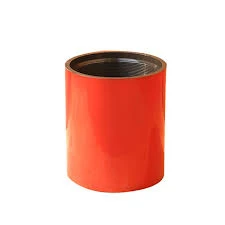- Afrikaans
- Albanian
- Amharic
- Arabic
- Armenian
- Azerbaijani
- Basque
- Belarusian
- Bengali
- Bosnian
- Bulgarian
- Catalan
- Cebuano
- Corsican
- Croatian
- Czech
- Danish
- Dutch
- English
- Esperanto
- Estonian
- Finnish
- French
- Frisian
- Galician
- Georgian
- German
- Greek
- Gujarati
- Haitian Creole
- hausa
- hawaiian
- Hebrew
- Hindi
- Miao
- Hungarian
- Icelandic
- igbo
- Indonesian
- irish
- Italian
- Japanese
- Javanese
- Kannada
- kazakh
- Khmer
- Rwandese
- Korean
- Kurdish
- Kyrgyz
- Lao
- Latin
- Latvian
- Lithuanian
- Luxembourgish
- Macedonian
- Malgashi
- Malay
- Malayalam
- Maltese
- Maori
- Marathi
- Mongolian
- Myanmar
- Nepali
- Norwegian
- Norwegian
- Occitan
- Pashto
- Persian
- Polish
- Portuguese
- Punjabi
- Romanian
- Russian
- Samoan
- Scottish Gaelic
- Serbian
- Sesotho
- Shona
- Sindhi
- Sinhala
- Slovak
- Slovenian
- Somali
- Spanish
- Sundanese
- Swahili
- Swedish
- Tagalog
- Tajik
- Tamil
- Tatar
- Telugu
- Thai
- Turkish
- Turkmen
- Ukrainian
- Urdu
- Uighur
- Uzbek
- Vietnamese
- Welsh
- Bantu
- Yiddish
- Yoruba
- Zulu
Well Casing Extension Couplings for Enhanced Deep Well Performance and Durability
Understanding Well Casing Extension Couplings in Oil and Gas Drilling
The oil and gas industry is characterized by various complex engineering processes, one of which is well drilling. To ensure the integrity and longevity of a well, engineers employ several components, one of the most critical being the well casing. Well casing extension couplings play a pivotal role in this system, serving as connectors that extend and reinforce the casing lines. This article delves into the significance, design, and application of well casing extension couplings in drilling operations.
Significance of Well Casing
Before discussing extension couplings, it's essential to understand the function of well casing. Well casing is a series of steel pipes that are inserted into a drilled wellbore to provide structural stability, prevent the collapse of the well walls, and protect groundwater from contamination by oil and gas. The casing also facilitates the safe and efficient extraction of hydrocarbons.
In many cases, a single section of casing is insufficient. Wells can extend thousands of feet into the ground, necessitating the connection of multiple casing sections to reach the desired depth. This is where extension couplings become crucial.
What are Well Casing Extension Couplings?
Well casing extension couplings are specialized connectors designed to join two or more sections of casing together. These couplings are engineered to withstand high pressures and harsh environmental conditions typical in drilling operations. Their primary purpose is to ensure the casings remain aligned and secure, thereby maintaining the well's structural integrity.
Design of Casing Extension Couplings
The design of well casing extension couplings is a critical engineering feat. These couplings are often produced using high-strength materials such as carbon steel or alloy steel, chosen for their durability and resistance to corrosion. The coupling must feature precision threads that allow for secure assembly and disassembly, enabling easy replacement or extension as required.
Different types of couplings may be used depending on the specific requirements of the well, including its depth, pressure conditions, and the type of drilling operation. The configurations and sizes of the couplings must also align with the casing pipes they connect, ensuring a seamless fit.
Types of Casing Extension Couplings
well casing extension coupling

Several types of extension couplings are available on the market, each designed for specific applications
1. Butt-Weld Couplings These couplings are welded directly to the pipe, offering strong, permanent connections that are resistant to leaks.
2. Threaded Couplings These involve the use of threaded ends that allow for flexible connections, facilitating easier installation and removal.
3. Flanged Couplings Used primarily in larger casing systems, flanged couplings feature flat, sealing surfaces that are bolted together, ensuring a secure fit.
4. Slip-on Couplings These simply slide over the ends of the casing segments and are often fastened with welding or additional mechanical means.
Applications in Drilling Operations
Well casing extension couplings are integral to numerous drilling operations. They are particularly beneficial in scenarios where the geological conditions necessitate increased depth, thereby requiring more extensive casing systems. By allowing for the extension of casing sections, these couplings facilitate drilling into deeper reservoirs, which may contain significant oil and gas resources.
Moreover, they are crucial during the process of well completion, where additional casing may be needed to secure the final wellbore before production begins. Their reliable performance also minimizes the risk of costly leaks and blowouts, ultimately enhancing the safety and efficiency of drilling operations.
Conclusion
In conclusion, well casing extension couplings are a cornerstone of the drilling industry, essential for the safe and effective extraction of hydrocarbons. With robust designs tailored for high-stress environments, these couplings ensure the structural integrity of wells, allowing drilling operations to reach unprecedented depths. As technological advances continue to shape the oil and gas sector, the role of well casing extension couplings will remain vital in fueling global energy demands while prioritizing environmental safety. Understanding their functionality and importance provides insights into the larger framework of drilling engineering and its contributions to resource extraction.
-
Tubing Pup Joints: Essential Components for Oil and Gas OperationsNewsJul.10,2025
-
Pup Joints: Essential Components for Reliable Drilling OperationsNewsJul.10,2025
-
Pipe Couplings: Connecting Your World EfficientlyNewsJul.10,2025
-
Mastering Oilfield Operations with Quality Tubing and CasingNewsJul.10,2025
-
High-Quality Casing Couplings for Every NeedNewsJul.10,2025
-
Boost Your Drilling Efficiency with Premium Crossover Tools & Seating NipplesNewsJul.10,2025







